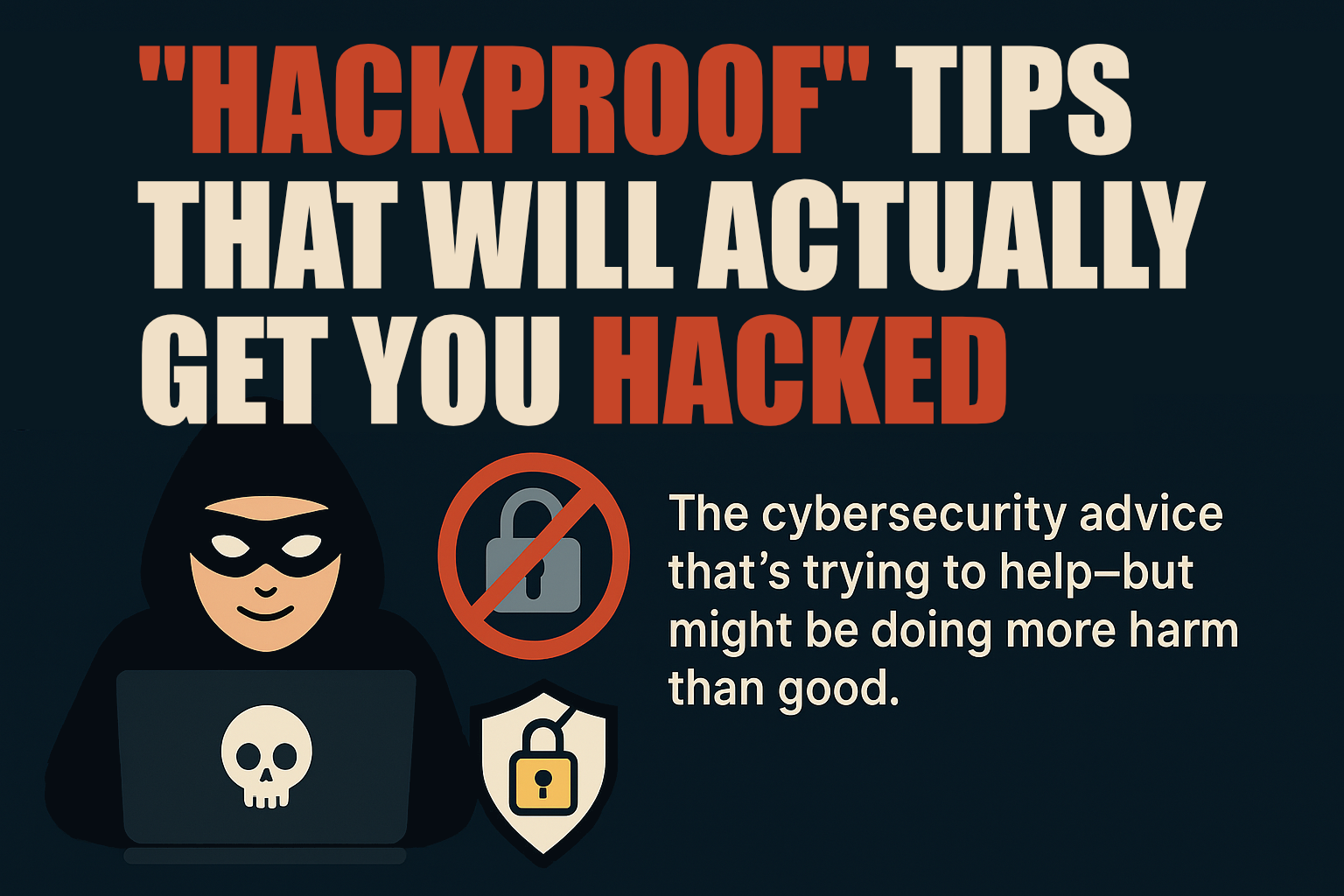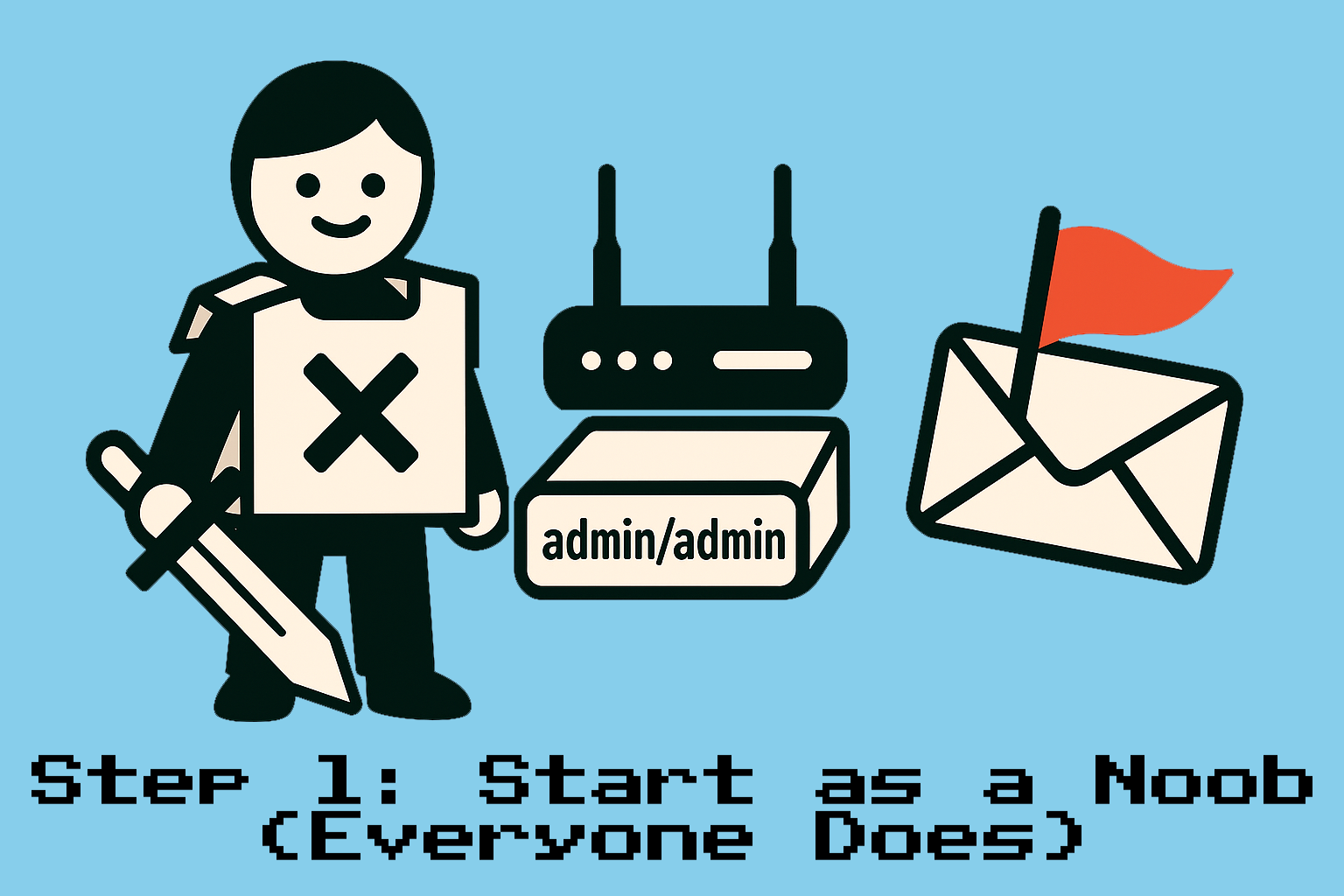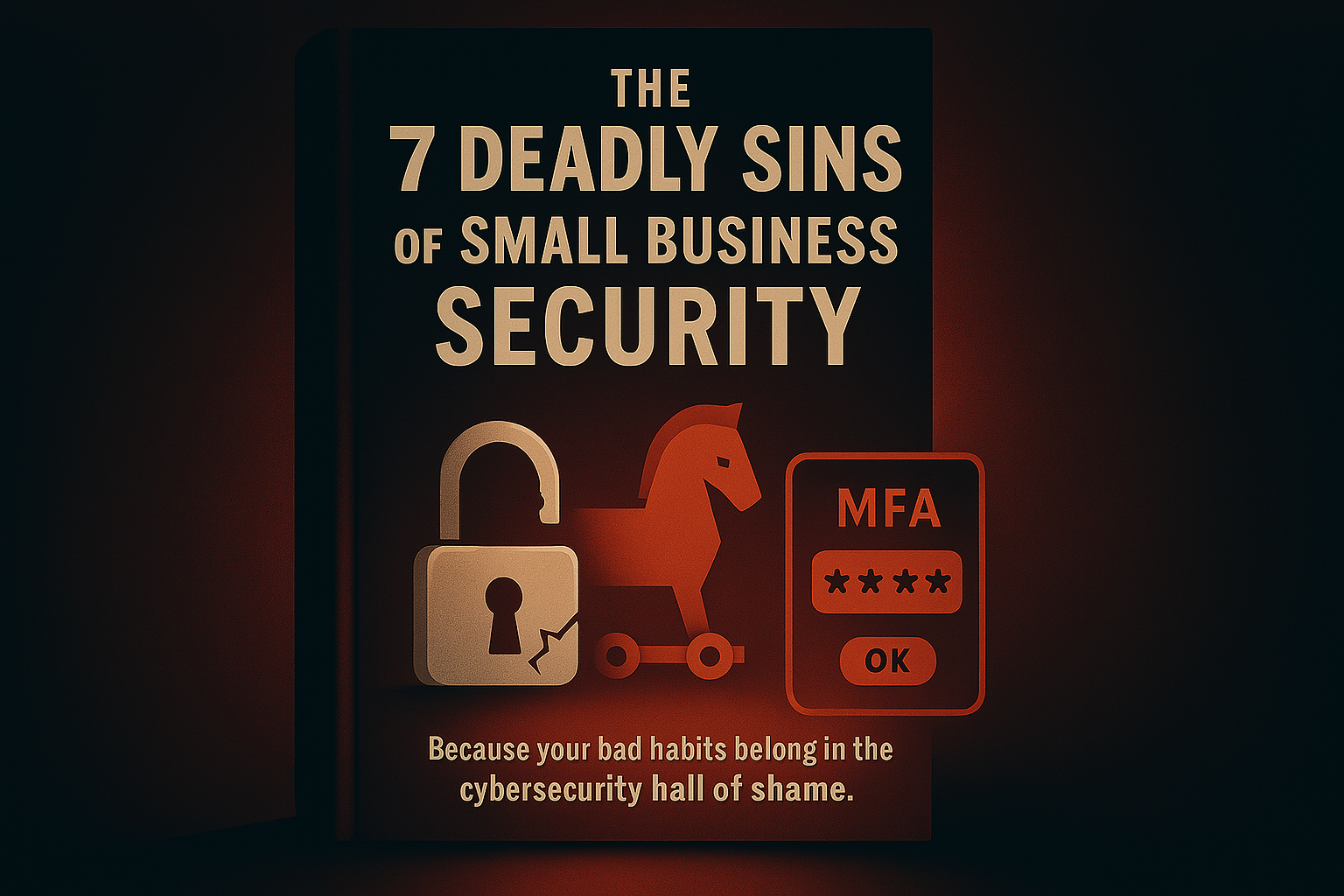“Hackproof” Security Tips That Will Actually Get You Hacked
The cybersecurity advice that’s trying to help—but might be doing more harm than good.
Not all hackproof security tips are actually secure. Some sound like solid advice, but in practice? They’re about as helpful as a seatbelt made of spaghetti. Here’s what to really watch out for.
Here are a few “secure” tips that might seem smart—until they roll out the red carpet for hackers.
❌ “Incognito Mode Keeps You Anonymous!”
🔍 What People Think It Does:
- Erases your browsing history
- Prevents sites from tracking you
- Makes you invisible online (🎶 cue the dramatic music)
💀 What It Actually Does:
- Just hides your history from you—not your ISP, employer, or the websites themselves
- Doesn’t stop cookies, fingerprinting, or login trackers
- Logged into Google or Amazon? They still know exactly who you are 👀
✅ Better Security:
Use tracker-blocking extensions, a privacy-focused browser, and VPNs (with caveats).
🔐 Bonus tip: Don’t overshare online—it’s not 2009.
❌ “Look for HTTPS—That Means a Website is Safe!”
🔍 What People Think:
- “If there’s a 🔒 lock icon, I’m good!”
- “HTTPS = legit, right?”
💀 The Reality:
- Hackers use HTTPS too—phishing sites are often secure-looking
- The lock just means encrypted, not trustworthy
- You can send your password securely… straight to a scammer 😱
✅ Better Security:
Always check the full URL and hover before you click.
Example: paypal-login.scam.com ≠ PayPal. 🙄
❌ “A VPN Protects You from Hackers!”
🔍 What People Think:
- “VPN = hacker shield!” 🦸♂️
- “Now I’m invincible, right?”
💀 The Reality:
- VPNs encrypt traffic, but don’t block:
• Malware
• Phishing
• Dumb passwords - Your VPN provider can still log your traffic
- And yes—“password123” is still trash 🔥
✅ Better Security:
Think of VPNs like sunglasses—they reduce exposure, not eliminate it.
Pair with:
🔐 Strong passwords
📲 Multi-Factor Authentication (MFA)
🧠 Basic common sense
Why These Myths Stick Around
These tips feel helpful because they’re easy to remember and sound legit. But real security isn’t about single “magic bullet” fixes.
🛡️ It’s about layering defenses:
- Good habits
- Smart tools
- Healthy skepticism
“If it sounds too good to be true… it probably is.” 😏
What to Do Instead
🔥 Start leveling up your security with simple, layered habits:
- Password manager + MFA
- Don’t trust links blindly
- Update your software regularly
- Train your team (or your family!)
At Opposite of Serious Security, we cut through the noise to give you no-fluff, actually-useful tools and templates. Because security doesn’t have to be boring—or full of bad advice. 🎯
📬 Ready to Ditch the Myths?
Don’t settle for half-truths and outdated tips.
👉 Check out more guides or Join the waitlist for policies that don’t suck.


